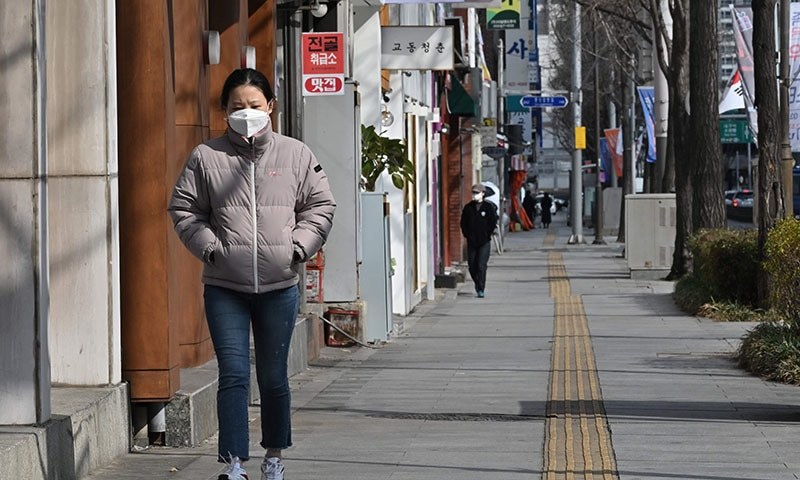WASHINGTON: The Covid-19 pandemic has encouraged negative trends across the globe — stirring nationalist sentiments and skepticism while stalling progress in poverty reduction and gender inequality, warns a US intelligence report.
“Covid-19 has shaken long-held assumptions about resilience and adaptation and created new uncertainties about the economy, governance, geopolitics, and technology,” says “The Global Trends: 2040” report released earlier this week.
The report argues that in a post-pandemic world, “no single state is likely … to dominate across all regions or domains (but) the United States and China will have the greatest influence on global dynamics.”
This will be “forcing starker choices on other actors, increasing jockeying over global norms, rules, and institutions, and heightening the risk of interstate conflict,” the report adds.
US intelligence analysts believe that the pandemic has not only reminded the world of its fragility but also has demonstrated the inherent risks of high levels of interdependence.
“In coming years and decades, the world will face more intense and cascading global challenges ranging from disease to climate change to the disruptions from new technologies and financial crises,” the report warns. “These challenges will repeatedly test the resilience and adaptability of communities, states, and the international system, often exceeding the capacity of existing systems and models.”
The Global Trends reports are issued every four years by the US National Intelligence Council (NIC) — alerting policymakers about challenges the world may face in both immediate and distant futures.
The 156-page document notes that the pandemic has worsened disparities between nations and within societies, reminding all that they are now entering a more contested world where communities will be increasingly fractured on economic, political, ethnic and religious lines.
They will seek to form like-minded groups based on established and newly prominent identities. In this world, states of all types and in all regions will struggle to meet the needs and expectations of more connected, more urban, and more empowered populations, the report adds.
The US intelligence community believes that in the post-pandemic world, international systems will be more competitive – shaped in part by challenges from a rising China. The world will be at a greater risk of conflict as states and nonstate actors exploit new sources of power. The new challenges will erode long standing norms and institutions that have provided some stability in past decades.
The report, however, notes that these dynamics are not fixed in perpetuity and underlines a variety of plausible scenarios for the world of 2040 — from a democratic renaissance to a transformation in global cooperation.
Published in Dawn, April 12th, 2021














































Dear visitor, the comments section is undergoing an overhaul and will return soon.